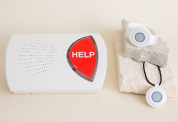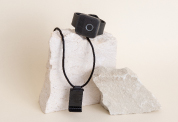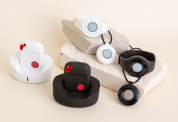Is It Time for Home Care?
January 16, 2024
Is It Time for Home Care?
As loved ones age, it is common for adult children or other family members to begin to worry about the amount of support the senior receives – or doesn’t receive – while living at home. When is the right time to begin the conversation about bringing in additional support, such as assistance from a home care caregiver? Here is what you need to know about your home care options, as well as red flags that could indicate some additional support is needed in order to keep your aging loved one safe, comfortable, and thriving at home.
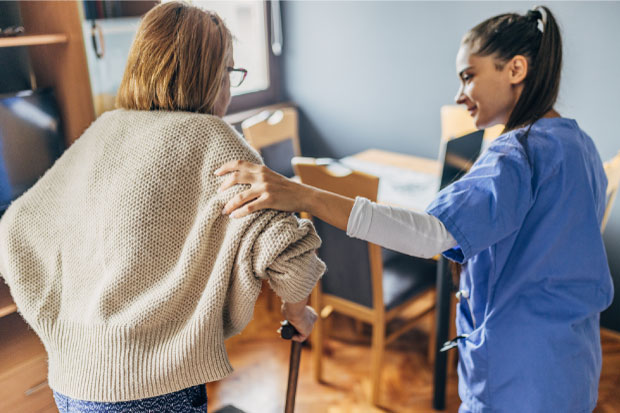
Different Types of Home Care
There are two main types of home care services: medical and nonmedical. Medical home care agencies are sometimes referred to as home healthcare and include services that can only be done by a licensed clinician. Medical home care services are prescribed by a physician and are often covered by Medicare. Examples of medical home care services include:
- Wound care
- Chronic condition management
- Physical, occupational, and speech therapy
- Injections
- Patient or caregiver education
- IV and/or nutrition therapy
In contrast, non-medical home care services do not need to be prescribed by a physician and are typically paid for out-of-pocket or through a Medicaid community based services waiver. Services are provided by caregivers who have been trained and educated by the agency, but who are not necessarily registered nurses or certified nursing assistants. Non-medical services can include:
- Transportation to/from appointments or errands
- Meal planning and grocery shopping
- Meal preparation
- Homemaker services, such as light housekeeping and laundry
- Assistance with personal care, such as bathing, grooming, dressing, and other activities of daily living
- Companionship and check-ins
Depending on your loved one’s needs and medical history, you have options for home care services that can be brought into the home.
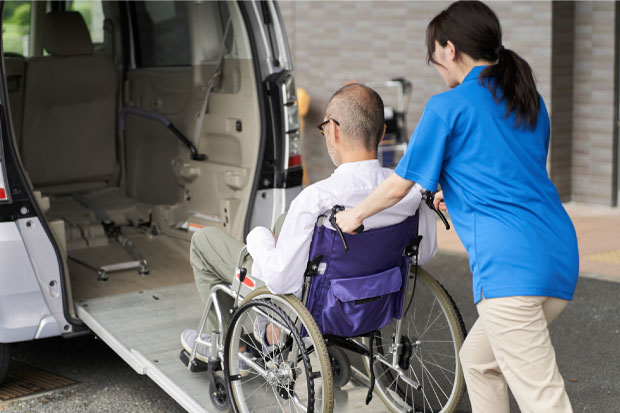
History of Falling
One red flag that can indicate that home care services might be your next best decision is a history of a fall in the past 6-12 months. Unfortunately, seniors have a high incidence of falls compared to their younger peers, with the Centers for Disease Control and Prevention reporting that 1 in 4 seniors fall annually. Falls can lead to emergency room visits, broken bones, and other trauma, as well as a sense of anxiety post-fall for the senior and their family members.
If you know that your loved one has fallen at home, with or without injury, in the past 6 months, it might be wise to consider bringing in extra support. Medical home care could provide balance and mobility assistance through therapy while non-medical support could include assistance with tasks that have a higher risk of falls, like showering.
Recent Hospital Stay or Change in Condition
The next red flag that could indicate home care is a good decision is any recent hospital stay or change in condition. Your loved one might be weak, fatigued, or at an increased risk for dehydration or falling after returning home from the hospital or if they have had a recent decline in their overall health.
Non-medical services can include assistance with activities of daily living so that your loved one can use their energy for healing and feeling better. In addition, caregivers can prepare meals, offer medication reminders, and even transport the senior to and from follow-up appointments. Medical home care services can include education about their new diagnosis, as well as follow up with any therapy referrals from the physician.
Poor Hygiene
Perhaps the biggest indicator that something is going on and that your loved one is not thriving at home is their hygiene. If you notice that your mom, who is always dressed to the nines for family visits, is sitting in her pajamas when you arrive for your usual Sunday evening dinner, it is wise to assume something is going on. Similarly, if your dad is wearing the same clothes over and over, or if he is unshaven, it is wise to inquire how things are going at home.
Showering, grooming, dressing, and laundry can all seem exhausting if you are in pain, or if you are experiencing confusion, fatigue, or are not getting around as easily as you once did. Additional assistance in the home can not only ensure your loved one is being well cared for, but can also give you an additional set of eyes in the home to observe what might be causing the poor hygiene habits.
Weight Loss or Gain
Healthy nutrition can be difficult to maintain as seniors age. Your loved one might struggle with preparing food for one person, or they might not be able to manage the cognitive task of meal planning and preparation. Or, they might just not have ever been the meal planner or cook in the family and are struggling now that they have to do it on their own.
If your loved one has experienced sudden weight loss or gain, and you know it wasn’t due to an underlying medical condition, it could be that they are not eating healthy foods at home. They could rely on overly-processed foods for the majority of their meals, or they might just be snacking throughout the day and not getting the vitamins and minerals they need for a healthy body and immune system.
The right non-medical in home care could provide nutritional support through meal planning, grocery shopping, and preparation.
If Home Care Isn’t An Option
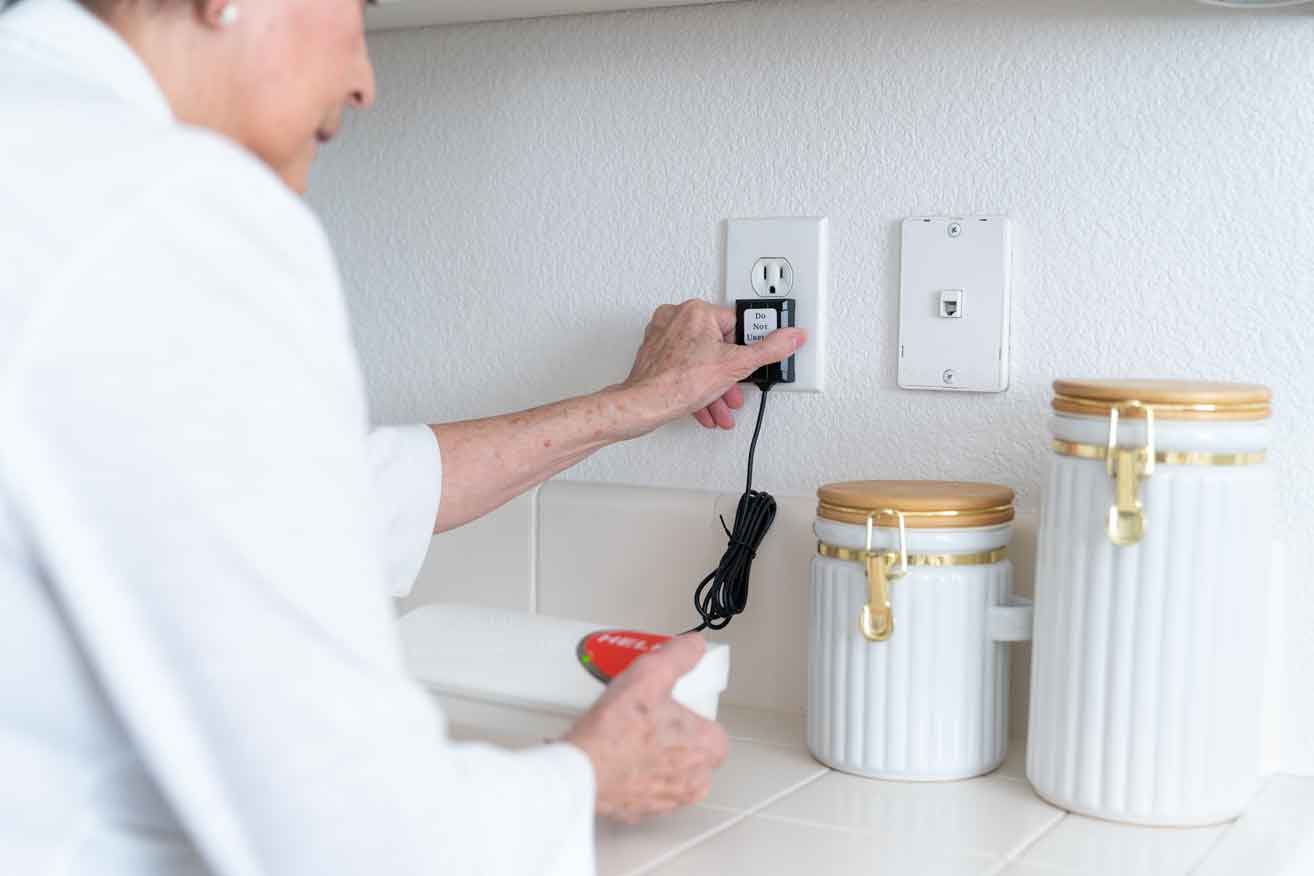
You might not be sure if home care is the right step right now, or you might just need a way to know if your loved one falls or experiences an emergency, that they have a way to get the help they need. In this case, a medical alert system might be a good fit. These systems provide operators who can answer in case of emergency and dispatch first responders as well as inform family caregivers of what is happening at the home. Peace of mind is well worth the investment.
When in doubt, involve your senior loved one in a conversation about how they are doing at home with their physician.
